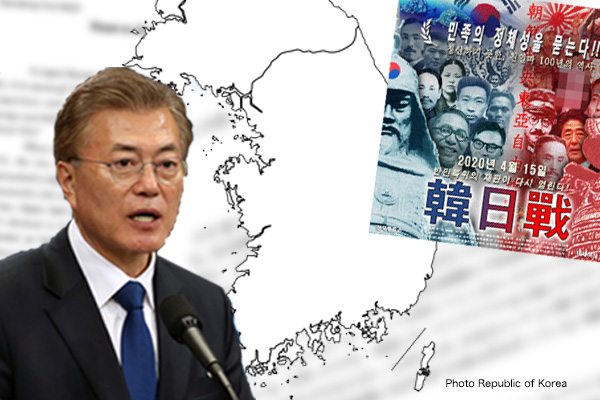South Korea’s general election on April 15 is approaching, with President Moon Jae In’s ruling camp overwhelmingly taking the lead.
South Korea’s National Assembly is a 300-seat unicameral legislature. It cannot be dissolved during the four-year term. Given the presidential term of five years, the general election timing differs from president to president. The upcoming election gives voters a chance to assess President Moon’s performance in the first three years of his term.
The ruling and opposition camps are seeking to win a simple majority of more than 150 seats or a two-thirds majority of 200 seats. Conservatives in the opposition camp are hoping to get the two-thirds majority to impeach President Moon. The two-thirds majority would also be required for the president to call a national referendum on a constitutional amendment for a federation-based unification with the North. If conservatives win the simple majority, they could abolish the notorious High-ranking Officials’ Corruption Investigating Agency Act, nicknamed Gestapo law after the secret police in Nazi Germany. If not, the agency would be inaugurated in July as planned to pave the way for the prosecutor general and other officials to be arrested after their investigations into Moon administration officials’ alleged illegal acts.
President Moon gathers support by tackling pandemic
Nominally, an election campaign issue is whether to give high ratings to the Moon administration for successfully dealing with the new coronavirus originated from Wuhan, China, or criticize the administration for bankrupting its economy. As of January, strong criticism of the economic policy failure was coupled with the prosecutors’ indictment of senior administration officials for local election corruption to indicate the ruling camp’s uphill election campaign.
In February, however, the Wuhan virus spread also in South Korea. In March, approval for the Moon administration rapidly increased as growth in the number of people infected with the virus came to a lull, with any healthcare collapse avoided to hold down the rate of deaths from the infection. A Gallup poll in early April found that an approval rating for the Moon administration rose to 56% close to a high recorded just after a North-South summit in Panmunjom in 2018, with a disapproval rating falling to 36%. As a reason for approval, 58% cited the successful dealing with the epidemic. The ruling Democratic Party of Korea got support from 41% of the respondents, almost double the popularity rating of 23% for the United Future Party, the largest opposition party.
Poor opposition camp performance
The sluggish popularity rating for the largest opposition party indicates its failure to unite conservatives who have had a sense of crisis about the Moon administration’s pro-Pyongyang and anti-Washington policy. While a real campaign issue is whether to support the Moon administration’s pro-Pyongyang policy, the largest opposition party has disappointed out-of-parliament conservatives by joining hands with opportunists that supported the impeachment of then President Park Geun Hye. The party’s campaign promises fail to include even the release of conservative former Presidents Park and Lee Myung Bak both now in prison.
In response to the ruling camp’s allegation that the United Future Party defends Japan’s Shinzo Abe administration and cannot criticize Japan, the largest opposition party has failed to refute the allegation as representing the anti-Japan tribalism distorting Korea’s modern history and has incredibly adopted an anti-Japan song titled “Dokdo is Korea Land” as its election campaign song and disseminated the footage of its leader Hwang Kyo Ahn and others singing the song while smiling.
Out-of-parliament conservatives, who successfully organized a South Korea flag rally of nearly one million people last October, have failed to unite anti-Moon forces as their leader Pastor Chun Kwang Hoon has been arrested for an incredible allegation of illegal pre-election campaigns, with the rally-based force splitting into three political parties. In the present situation, the opposition camp is likely to fail to win a simple majority in the legislature. A focus of attention is whether South Korea could avoid the worst scenario in which the ruling camp would win the two-thirds majority of 200 seats to call a constitutional amendment referendum.
Tsutomu Nishioka is a senior fellow and a Planning Committee member at the Japan Institute for National Fundamentals and a visiting professor at Reitaku University. He covers South and North Koreas.


